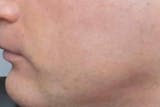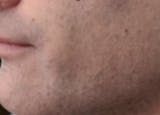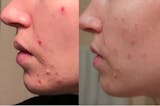
For families with eczema, sunscreen, is a constant concern. How the sun affects you or your kids' skin is a constant, year-round consideration. You want a product that protects you from the damaging effects of ultraviolet light and not cause a flare-up with hidden allergens.
Recent research has also revealed that the microbiome plays a critical role in the eczema cycle by protecting against triggers and helping control inflammation. Ingredients in sunscreens can destroy the skin microbiome, which can lead to a flare-up, even when the sunscreen has little to no allergens in it.
Below, we discuss the most eczema-friendly sunscreens, take a look at some of the research from our labs on how sunscreens affect the skin microbiome, and give you a data-driven selection of our top sunscreens if you’re living with eczema, sensitive skin, or are looking for the gentlest, most effective products that you can find.
What Are Eczema-Friendly Sunscreens?
Sunlight can be a friend or foe for those living with eczema. Some studies have shown that controlled exposure to natural sunlight and UV therapy can benefit those with eczema, reducing their symptoms. On the flip side, many eczema sufferers experience an aggravation of their symptoms due to sun exposure.
Balancing vulnerable skin and the benefits of sun protection makes selecting the right sunscreen with the right ingredients essential.
National Eczema Association Guidelines
The National Eczema Association and dermatologists recommend using the following criteria for picking a sunscreen:
- Zinc oxide- or titanium dioxide-based sunscreen; avoid sunscreens that with other active ingredients
- Doesn’t contain known allergens
- Sun protectant factor (SPF) of 30 or greater
- Broad-spectrum protection against UVA and UVB rays
- Look for alcohol- and fragrance-free
- Water-resistant
Generally, zinc oxide- and titanium dioxide-based sunscreens (which physically block the skin from UV rays and are called collectively "physical blockers") have distinct advantages for eczema patients as they:
- Rarely cause skin irritation or sensitization
- Do not react with other chemicals on the skin
- Offer broad spectrum protection from UVA and UVB
- The ingredients do not penetrate to the lower layers of the skin (if they are non-nano)
Going Further To Include The Microbiome
Another consideration when choosing a sunscreen is how it affects the skin microbiome. The skin microbiome aids those with eczema and sensitive skin by protecting against harmful, invasive microbes, and exerting anti-inflammatory effects.
An unbalanced skin microbiome can bring on flare-ups and relapse in children and adults.
Exposure to UV light is also known to influence the composition and activity of skin microbes, sometimes for the worse, so a sunscreen could help maintain a healthy microbiome. However, the zinc oxide present in many physical blocker sunscreens has been reported to be toxic to a broad array of microbes.
Which begs the question...
Is There A Microbiome-Safe Zinc-Based Sunscreen?
Skin microbes play an essential role in maintaining skin health by promoting regular skin renewal, protecting against harmful, invasive microbes, adjusting your immune system’s activity, exerting anti-inflammatory effects, and facilitating wound healing.
Zinc oxide and titanium dioxide on their own can be toxic to certain skin microbes and extremely drying to the skin, but not all sunscreen products contain the same form of zinc oxide and/or titanium dioxide.
The FDA requires that the ingredient label keeps-it-simple in an effort to be understandable to consumers. Inside the bottle though, one zinc- or titanium-containing sunscreen may have very different forms of zinc and titanium than another brand.
Luckily, zinc and titanium physically block the sunlight. Therefore they can be encapsulated in another material and not lose their effectiveness.
Some sunscreens encapsulate their zinc in oil. It makes the zinc easier to spread in an even layer. However, over time, the oil capsule is likely to break and the zinc become free to harm the microbiome and dry the skin. This is common with homemade sunscreen formulations.
Some other sunscreens encapsulate their zinc in silicon or acrylates. These keep their encapsulation longer and have the benefit of being more waterproof.
To find a microbiome-safe zinc sunscreen, we recommend finding a sunscreen with silicon-encapsulated zinc. That encapsulation should provide protection from the zinc/titanium.
The encapsulation may not be on the label, so we took several popular sunscreens into our lab to find out for you. The results are below.
Can A Zinc Sunscreen Be Clear?
Zinc physically blocks sunlight and as a result of being very good at that - it looks white.
To solve the issue of the whiteness associated with zinc sunscreen, chemists started using smaller zinc oxide or titanium dioxide particles, called “nano” zinc or “nano” titanium. The benefit of these nano-sized particles is that they appear transparent or can be tinted for certain skin tones.
While appealing, there have been reports that zinc and titanium nano-particles can penetrate the deeper layers of the skin, leading to irritation and mutations in DNA.
Further, these are harder to encapsulate and therefore could also harm your skin microbiome and cause excessive dryness of the skin.
This controversy continues today, and scientific literature on this argument has stacked up on both sides.
We think it is safer to find a good balance of sunscreen SPF and the skin tone that you like. In most cases, we'd recommend an SPF 50, but if appearance is of concern, it is ok to reach for an SPF 30 with less zinc in it and compliment it by trying to find some shade.
Putting Eczema-Friendly Sunscreens To The Test
Our scientific team at Rulo is deeply interested and invested in the effect of sunscreens on the skin microbiome.
To get a better understanding of the effect sunscreens have on the microbiome and find a safer sunscreen for your infants, kids, and adults with eczema, we performed two types of experiments in our labs:
- Microbiome Toxicity Testing: We grew microbial communities isolated from human skin along with select sunscreens (see below) to see if any of them prevented, or stopped, microbial growth (e.g. killed the microbiome).
- UV Protection Testing: UV light can be harmful to any living organism, without protection. The same is true for microbes. We mixed sunscreens with microbial communities from human skin to measure how protective each sunscreen was.
In each of these experiments, we also tested our patent-pending prebiotic, BioBloom™ to investigate if it protected the skin microbiome from harmful sunscreen and/or the effects of UV.
Our Sunscreen Candidates
We hand-picked several commonly used eczema-friendly sunscreen products and some more broadly used sunscreens for a comparison. In the tables below, we show which ones were tested and some of the notable characteristics, including cost and active ingredients.

Don't see a sunscreen that you are curious about? Let us know what sunscreen would you like us to test next!
Zinc/Titanium "Physical" Actives (Should Be More Eczema-Friendly)
|
Brand |
Active Ingredient |
SPF |
Cost |
|
Zinc Oxide, 21.6% |
50 |
$3.20/oz |
|
|
Zinc Oxide, 20% |
50 |
$5.66/oz |
|
| Babo Botanicals Clear Zinc | Zinc Oxide, 19% | 30 | $4.27/oz |
|
Titanium Dioxide, 3%; Zinc Oxide, 12% |
50+ |
$1.67/oz |
|
| Cerave Hydrating Mineral Sunscreen Body | Titanium Dioxide, 9%; Zinc, 7% | 50 | $2.99/oz. |
|
Zinc Oxide, 20% |
55+ |
$4.00/oz |
|
| La Roche-Posay Anthelios HA | Titanium Dioxide, 5.5%; Zinc, 10% | 50 | $21.18/oz |
|
Titanium Dioxide, 4.9%; Zinc Oxide 4.7% |
60+ |
$3.83/oz |
|
| Shiseido Ultimate Sun Protector Lotion WetForce for Sensitive Skin | Titanium Dioxide, 9%; Zinc, 19% | 50 | $10.17/oz |
|
Zinc Oxide, 20% |
50+ |
$3.67/oz |
|
| ThinkSport Clear 30 | Zinc, 20% | 30 | $5.16/oz |
| ThinkSport Clear 50 | Zinc, 23% | 50 | $5.16/oz |
|
Zinc Oxide, 20% |
50 |
$4.83/oz |
Chemical Actives
|
Brand |
Active Ingredient |
SPF |
Cost |
|
Avobenzone, 2.7%; Homosalate, 9%; Octisalate, 4.5%; Octocrylene, 6.5% |
50+ |
$0.83/oz |
|
| Shiseido Ultimate Sun Protector Lotion | Avobenzone, 2%; Homosalate, 10%; Octisalate, 5%; Octocrylene, 5% | 50 | $9.67/oz |
|
Avobenzone, 3%; Homosalate, 10%; Octisalate, 5%; Octocrylene, 10% |
50 |
$3.33/oz |
|
|
Avobenzone, 3%; Homosalate, 8%; Octisalate, 5%; Octocrylene, 4% |
40 |
$21.18/oz |
A Quick Disclaimer
We received no monetary (or other) compensation for testing these sunscreen products. This study aims to provide data-driven insights for those living with eczema, not to sell more or less of one or several sunscreen brands.
In addition, the data presented below is preliminary and has not gone through the rigors of peer-review, a gold standard for reliability and reproducibility in the scientific community. These experiments were, however, conducted by our Ph.D.-level scientists to discover what is true, not what is good for business.
Our Results
Microbiome Toxicity Testing
We grew microbial communities isolated from human skin along with select sunscreens (see below) to see if any of them prevented, or stopped, microbial growth (e.g. killed the microbiome).
(Note: this could be viewed as a proxy for how drying the sunscreen is as well)
Several sunscreens, including Aveeno Baby, ThinkSport, and ThinkBaby, contain encapsulated zinc oxide that did not interact with the microbiome.
Babo Botanicals and Hello Bello reduced the growth of the microbial communities by approximately 20% and 15%, respectively. This came with a sense of irony for us as the Hello Bello bottle we tested claiming to have "prebiotics" in it to protect the microbiome.
To determine if BioBloom rescued this reduction in microbial growth, we performed the same experiment but included BioBloom along with our test sunscreens. In the case of Boba Botanicals, BioBloom restored the growth of the microbial community by 12%, suggesting that it suppressed the toxicity of the sunscreen to the microbes.
With Hello Bello, including BioBloom didn’t help the skin microbes grow any better in the presence of the sunscreen, possibly indicating how toxic Hello Bello is to the microbiome.
Babyganics seemed to slow microbial growth. The introduction of BioBloom counteracted this to some degree. So we gave Babyganics a "Use with Caution" and recommend it only with BioBloom.
Our results are summarized in the tables below.
Zinc/Titanium Actives (Should Be More Eczema-Friendly)
|
Brand |
Toxic To Microbiome? |
|
Certified Safe |
|
|
Avoid |
|
| Avoid | |
|
Use With Caution |
|
| Avoid | |
|
Avoid |
|
| Avoid | |
|
Certified Safe |
|
|
Shiseido Ultimate Sun Protector Lotion WetForce for Sensitive Skin |
Use With Caution |
|
Certified Safe |
|
| Certified Safe | |
| Certified Safe | |
|
Certified Safe |
Chemical Actives
|
Brand |
Toxic To Microbiome? |
|
Certified Safe |
|
| Certified Safe | |
|
Certified Safe |
|
|
Certified Safe |
UV Protection Testing
As a baseline, we exposed three different microbiome communities to UV light by itself. This reduced microbial growth by 43% as compared to microbes not exposed to UV at all.
We then mixed sunscreens with the three microbial communities to measure how protective each sunscreen was.
As expected, all of the sunscreens provided some protection to the microbial communities, but in some cases, not as much as the SPF might indicate.
When BioBloom was included with the sunscreen, the microbiome health improved, often by greater than 10%.
Our results are summarized in the tables below.
Zinc/Titanium Actives (Should Be More Eczema-Friendly)
|
Brand |
Microbiome UV Protection |
|
Avoid |
|
|
Moderate |
|
| Moderate | |
|
Moderate |
|
| Moderate | |
|
Avoid |
|
| Moderate | |
|
Excellent |
|
|
Shiseido Ultimate Sun Protector Lotion WetForce for Sensitive Skin |
Moderate |
|
Moderate |
|
| Excellent | |
| Excellent | |
|
Excellent |
Chemical Actives
|
Brand |
Microbiome UV Protection |
|
Moderate |
|
| Excellent | |
|
Moderate |
|
|
Moderate |
Allergen Review
Our review could not be complete unless we dove into the ingredient label and looked for allergens and other harmful chemicals.
The Environmental Working Group is a non-profit dedicated to pulling forward ingredient safety research into the pubic sphere. We relied on their website to get a baseline on each sunscreen and then we added our experience in the mix.
The results are in the tables below.
Zinc/Titanium "Physical" Actives (Should Be More Eczema-Friendly)
We were surprised by the high ratings for several products marketed to sensitive skin customers, but equally happy to find a number of products that are relatively safe!
|
Brand |
EWG Rating ("1" is Best) |
Why |
|
5 |
Moderate allergens - Link |
|
|
2 |
Low-risk allergens - Link |
|
| 2 | Low-risk allergens - Link | |
| 3 |
Low-risk allergens - Link |
|
| 3 |
Low-risk allergens - Link |
|
|
5 |
Citrus Oil - Link |
|
| 2* |
Low-risk allergens - Link |
|
|
10 |
Allergens, Sun risk - Link |
|
|
Shiseido Ultimate Sun Protector Lotion WetForce for Sensitive Skin |
2* |
Low-risk allergens - Link |
|
2 |
Low-risk allergens - Link |
|
| 1 |
Low-risk allergens - Link |
|
| 5** |
Low-risk allergens - Link |
|
|
2 |
Low-risk allergens - Link |
* Rated a 2, but there are components that are as high as 4 and we think the combination should be rated a 4.
** Rated a 5, but that seems to be based on SPF, not allergens. We think it should be a 2 based on allergens alone.
Chemical Actives
|
Brand |
EWG Rating ("1" is Best) |
Why |
|
4 |
Fragrance & allergens - Link |
|
| 8 |
Fragrance & allergens - Link |
|
|
5 |
Fragrance & allergens - Link |
|
| 2* |
Zinc sulfate - Link |
* Rated a 2, but there are components that are as high as 4 and we think the combination should be rated a 4.
Rulo’s Picks: Best Sunscreens For Eczema
Our results above help shed light on a current gray area in the scientific literature: What is the effect of sunscreen on the composition and activity of the skin microbiome? Based on this data and the recommendations of the National Eczema Association, we’ve made some picks on what we believe are the most eczema- and microbiome-friendly sunscreens.
Best Overall Sunscreen

ThinkBaby / ThinkSport
We were impressed with Think's line of products. Their ingredients were easy on the microbiome and had good UV protection. They have done a good job formulating without allergens, fragrances, and other irritants.
The best overall protection is found in the ThinkBaby line, but the ThinkSport was comparable at a slightly lower cost.
Microbiome Safety: Certified Safe (Both)
UV Protection: Excellent - ThinkBaby, Moderate - ThinkSport
Allergens Risk: Low (Both)
Meets or Exceeds National Eczema Society Recommendations: Yes (Both)
Cost: Moderate
Best Money Saver

Babyganics
The Babyganics product we tested had respectable results in UV protection. It inhibited the microbiome, but if you used BioBloom with it, grow was restored. We suspect that if you washed off the sunscreen promptly, your microbiome would recover.
The cost was substantially below the Think line.
Microbiome Safety: Inhibits growth
UV Protection: Moderate
Allergens Risk: Low
Meets or Exceeds National Eczema Society Recommendations: Yes
Cost: Low
Best For Color (Eczema-Friendly)

ThinkSport Clear SPF 30 or 50
We get it: sometimes you don't want to look white. But it is very hard to avoid and still get great protection.
Luckily, Think has a new product line with "clear zinc".
Microbiome Safety: Certified Safe
UV Protection: Excellent
Allergens Risk: Low
Meets or Exceeds National Eczema Society Recommendations: Yes
Cost: Moderate

Above is a comparison of the color of the sunscreens on Type 3-4 skin. The Banana Boat has no color, just a shiny sheen. ThinkSport Clear 30 leaves a barely noticeable whiteness. ThinkBaby 50 on the far left is typical of zinc-based sunscreens that do not claim "clear-ness" of any type.
Best For Color (Chemical Blockers Allowed)

Banana Boat
If you are ok with the risks associated with a chemical blocker and need a clearer sunscreen, we would go with Banana Boat.
Microbiome Safety: Certified Safe
UV Protection: Moderate
Allergens Risk: Moderate
Fits with National Eczema Society Recommendations: No
Cost: Low
We understand how personal a sunscreen selection can be for you and your family. Just because we didn’t pick your sunscreen of choice doesn’t mean it’s an inferior product.
You know best what works for your and your loved one’s skin.
But, our data suggest that using BioBloom or our Skinfluence™ products can likely improve the protection you already experience when combined with your favorite sunscreen.
Let us know what sunscreen would you like us to test next!
References
We are a team of scientists and physicians who deeply research to bring you the latest accurate information. Wherever possible we cite 3rd party research that is not backed by industry labs. Below are the papers we used to bring you this article.
The influence of sun exposure in childhood and adolescence on atopic disease at adolescence
What’s the Skinny on Sunscreen and Eczema?
The Role of Photoprotection in Optimizing the Treatment of Atopic Dermatitis
Sunscreens – what's important to know
Properties of Zinc Oxide Nanoparticles and Their Activity Against Microbes
Titanium dioxide and zinc oxide nanoparticles in sunscreens: focus on their safety and effectiveness
About The Author
Dr. Nicole Scott, PhD, MPH has published 29 peer-reviewed papers regarding human biology and the microbiome. Her work has been cited over 4000 times.
She is the Founder of Cybele Microbiome and Rulo Skin.


